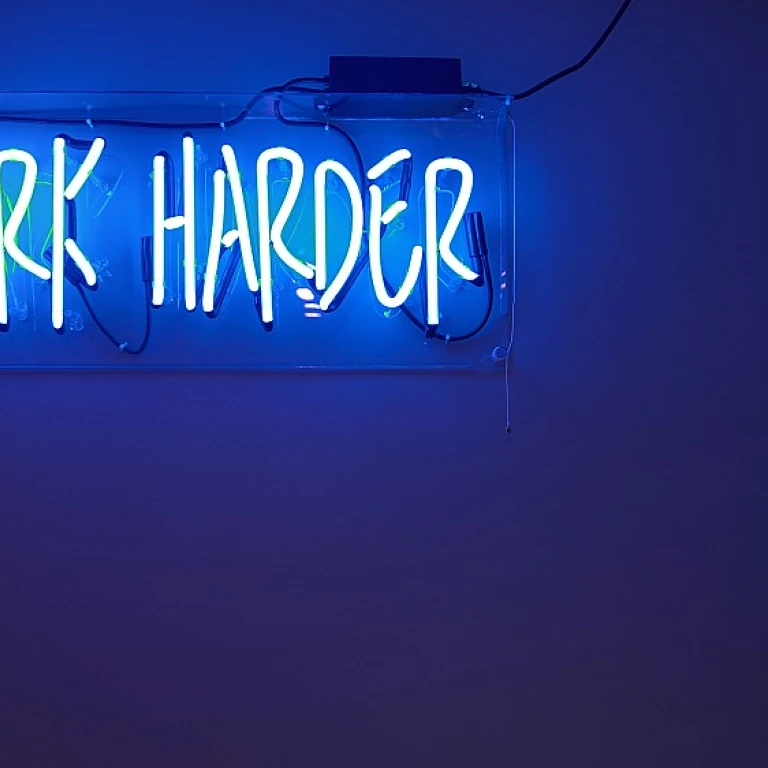
Understanding the value of 1 on 1 meetings in entrepreneurship
Why One-on-One Meetings Matter in Entrepreneurship
In the fast-paced world of entrepreneurship, it’s easy to overlook the importance of regular one-on-one meetings between managers and their direct reports. Yet, these meetings are a cornerstone for building better teams and driving performance. They create a dedicated space for open feedback, structured agendas, and meaningful check-ins that go beyond surface-level project management.
When managers take the time to meet individually with team members, it signals that people matter. These sessions help uncover challenges, clarify expectations, and set actionable goals. Unlike group meetings, a one meeting format allows for radical candor—honest conversations that foster trust and accountability. This is especially important when working with diverse teams, where each direct report may have unique needs and perspectives.
Building Trust and Accountability
Direct communication in a one-on-one setting helps managers understand what’s working and what isn’t. It’s an opportunity to gather comments, discuss performance reviews, and align on action items. By using a meeting template or a structured agenda, managers can ensure that each session covers key talking points, from ongoing projects to personal development. This approach not only supports better performance but also strengthens the manager-employee relationship.
- Encourages open feedback and transparency
- Helps identify and resolve issues early
- Supports continuous improvement through regular check-ins
- Drives accountability with clear action items
For those exploring career opportunities in dynamic environments, such as alarm receiving centers, the value of personalized mentorship and direct meetings becomes even more apparent. These roles demand quick thinking, adaptability, and strong communication—qualities that are best nurtured through regular, focused one-on-one sessions.
Ultimately, investing time in these meetings is not just about performance management. It’s about creating a culture where people feel heard, supported, and motivated to do their best work. As we move forward, preparing for impactful sessions and personalizing your approach will be key to unlocking the full potential of your team.
Preparing for impactful 1 on 1 sessions
Setting the Stage for Effective Conversations
Preparation is the backbone of impactful one on one meetings. As a manager, taking time to plan each session helps you build better connections with your direct reports and ensures every meeting is valuable for both sides. A structured agenda is not just a formality; it’s a tool that guides the conversation, keeps everyone focused, and allows for meaningful feedback.- Define clear objectives: Before the meeting, outline what you want to achieve. Are you focusing on performance, project management, or personal development? Setting goals helps you and your team member stay aligned.
- Gather relevant data: Review recent performance reviews, check ins, and comments from previous meetings. This preparation allows you to provide specific feedback and track progress on action items.
- Invite input: Encourage your direct report to add their own talking points to the meeting agenda. This fosters radical candor and ensures the conversation addresses what matters most to them.
- Respect privacy and trust: Remind your team about your user agreement, privacy policy, and cookie policy if you’re using digital tools to manage meetings. Transparency builds trust and helps people feel safe sharing honest feedback.
- Use a meeting template: A consistent format for one meetings helps everyone know what to expect. Templates can include sections for updates, challenges, wins, and next steps.
Maximizing Value with Time Management
Time is a precious resource for managers and their teams. To make the most of every one meeting:- Start and end on time. This shows respect for everyone’s work and keeps meetings efficient.
- Prioritize topics. Focus on the most important issues first, especially those that impact performance or require immediate action.
- Document action items. Summarize next steps at the end of each meeting so both manager and direct report are clear on responsibilities.
Leveraging Tools for Better Meetings
Entrepreneurs can benefit from digital solutions that streamline meeting preparation and follow-up. For example, a retail management system can help managers organize agendas, track performance, and manage project updates efficiently. These tools support a more structured approach, making it easier to monitor progress and keep everyone accountable. Remember, the goal of preparation is not just to check a box, but to create a space where people feel heard, supported, and motivated to do their best work.Navigating common challenges in 1 on 1 meetings
Overcoming Barriers to Effective One-on-One Meetings
Running impactful one-on-one meetings can be challenging for managers and team members alike. Even with a structured agenda and clear talking points, several obstacles can get in the way of productive check-ins. Here are some common challenges and practical ways to address them:- Lack of Time: Busy schedules often push meetings down the priority list. However, regular one meetings are essential for performance management and building better relationships with direct reports. Consider using a meeting template to streamline preparation and ensure each session is focused and efficient.
- Unclear Purpose: Without a clear meeting agenda, sessions can become unfocused. Setting action items and sharing the agenda in advance helps both the manager and direct report come prepared, making the most of the time together.
- Insufficient Feedback: Feedback is a two-way street. Managers should encourage open comments and radical candor, creating a safe space for honest discussion. This helps team members feel heard and supported, leading to better performance and engagement.
- One-Sided Conversations: Sometimes, meetings become manager-driven, leaving little room for the direct report to share. To avoid this, managers can ask open-ended questions and actively listen, ensuring the conversation addresses both parties' needs.
- Follow-Through on Action Items: It’s easy for action items to get lost between meetings. Using project management tools or a simple checklist can help track progress and hold both the manager and team member accountable.
Building Trust and Consistency
Consistency is key in making one-on-one meetings effective. Regular check-ins, even if brief, show commitment to team members’ growth and well-being. Managers should respect privacy policy and user agreement guidelines, especially when discussing sensitive topics. This builds trust and encourages open communication. If you’re struggling to maintain effective meetings or need support in project management, consider exploring how to effectively find an interim manager online. Interim managers can bring fresh perspectives and help implement structured agendas, driving better results for your team. Remember, overcoming these challenges is not about perfection but about continuous improvement. With the right approach, one-on-one meetings become a powerful tool for driving team performance and accountability.Personalizing your approach for different team members
Adapting Your Approach to Individual Needs
Every team is made up of people with different backgrounds, working styles, and motivations. As a manager, it’s important to recognize that a one-size-fits-all approach to one on one meetings rarely delivers the best results. Instead, personalizing your meeting agenda and talking points can help you build better relationships and drive stronger performance.- Understand working styles: Some direct reports prefer structured agendas and clear action items, while others thrive in more open, conversational check ins. Take time to observe and ask about their preferences during your meetings.
- Adjust feedback methods: Radical candor works well for some, but others may need more gentle, supportive feedback. Tailor your comments to the individual to encourage honest dialogue and growth.
- Respect time and priorities: Not everyone wants a long meeting. Some team members appreciate brief, focused one meetings that respect their workload. Use a meeting template to keep things on track and relevant.
- Align on goals: Make sure each meeting agenda reflects the direct report’s current projects and personal development goals. This shows you value their work and are invested in their success.
Building Trust Through Consistency
Personalization is not just about changing your style; it’s about building trust over time. Regular check ins and follow-ups on previous action items show your direct reports that you listen and care. This helps create a safe space for open feedback and honest performance reviews. Managers who adapt their approach for each team member often see better engagement and improved project management outcomes. By focusing on the unique needs of each person, you help your team feel valued and supported, which leads to higher performance and accountability. Remember, respecting privacy policy and user agreement guidelines is essential when discussing sensitive topics. Always ensure your one on one meetings remain confidential and professional, creating an environment where people feel comfortable sharing challenges and successes.Using 1 on 1 meetings to drive performance and accountability
Turning Conversations into Tangible Results
One-on-one meetings are more than just check-ins; they are a powerful tool for driving team performance and accountability. When managers use a structured agenda and clear talking points, these meetings become focused sessions that help direct reports understand expectations and align their work with business goals.- Set clear action items: Every meeting should end with specific action items. This helps both the manager and the direct report stay accountable and track progress over time.
- Use feedback as a performance driver: Honest, timely feedback—sometimes called radical candor—helps people know where they stand and what they can improve. Regular feedback in one meetings can reduce surprises during performance reviews.
- Leverage meeting templates: A consistent meeting template or agenda ensures important topics are covered, from project management updates to personal development goals. This structure helps build better habits and makes meetings more productive.
- Monitor and follow up: Keep a record of comments, action items, and outcomes. This not only helps with accountability but also provides valuable data for future performance reviews.
Building a Culture of Accountability
Managers who prioritize regular one-on-one meetings create a culture where accountability is expected and supported. When team members know that their work will be discussed and that their manager is invested in their success, they are more likely to take ownership of their responsibilities.- Encourage direct reports to bring their own agenda items. This empowers people to take charge of their development and ensures meetings address what matters most to them.
- Use check ins to track progress on ongoing projects and adjust priorities as needed. This flexibility helps teams stay agile and focused on results.
- Respect privacy and trust. Adhering to a clear privacy policy and user agreement builds trust, making it easier for team members to share challenges and seek help.
Measuring the impact of your 1 on 1 meetings
Tracking Progress with Clear Metrics
To truly understand the impact of your one on one meetings, it’s essential to track progress using clear, relevant metrics. This goes beyond just checking off agenda items. Consider how your direct reports are performing over time, and whether the feedback and action items discussed in meetings are leading to measurable improvements. Structured agendas and meeting templates can help you keep a consistent record of talking points and follow-up actions, making it easier to spot trends and areas for growth.Gathering Feedback from Your Team
Regular check ins with your team members offer valuable insights into how effective your meetings are. Encourage open comments and radical candor during these sessions. Ask direct questions about what’s working and what could be improved. This feedback loop not only helps you refine your approach, but also builds trust and accountability within your team. Remember, the goal is to help people work better together, not just to complete a meeting agenda.Evaluating Performance and Accountability
Use your one on one meetings as a foundation for performance reviews and ongoing project management. Track action items and follow up on previous discussions to ensure accountability. If you notice recurring challenges, adjust your approach to better support your direct reports. Over time, you should see a correlation between the quality of your meetings and the overall performance of your team.Leveraging Tools and Policies for Better Results
Consider using digital tools that support structured agendas, meeting templates, and privacy policy compliance. These resources can help managers and employees stay aligned, maintain user agreement standards, and respect cookie policy requirements. By building better systems for your one meetings, you create an environment where everyone can focus on meaningful work and continuous improvement.- Set clear goals for each meeting and track progress
- Document action items and follow up regularly
- Encourage honest feedback from direct reports
- Use check ins to adjust your approach as needed
- Integrate project management tools to streamline accountability
Measuring the impact of your one on one meetings is an ongoing process. By focusing on performance, feedback, and structured follow-up, managers can help their teams achieve better results and foster a culture of continuous improvement.













